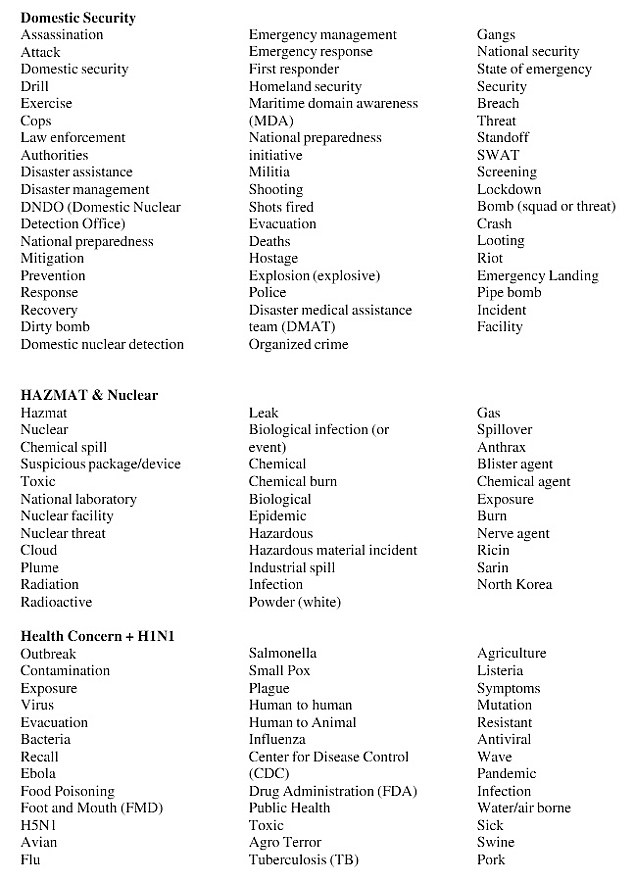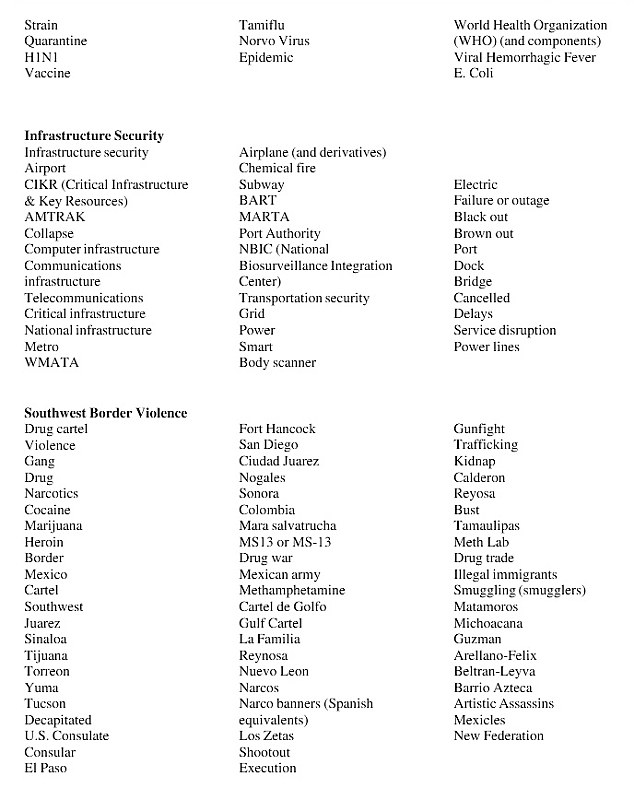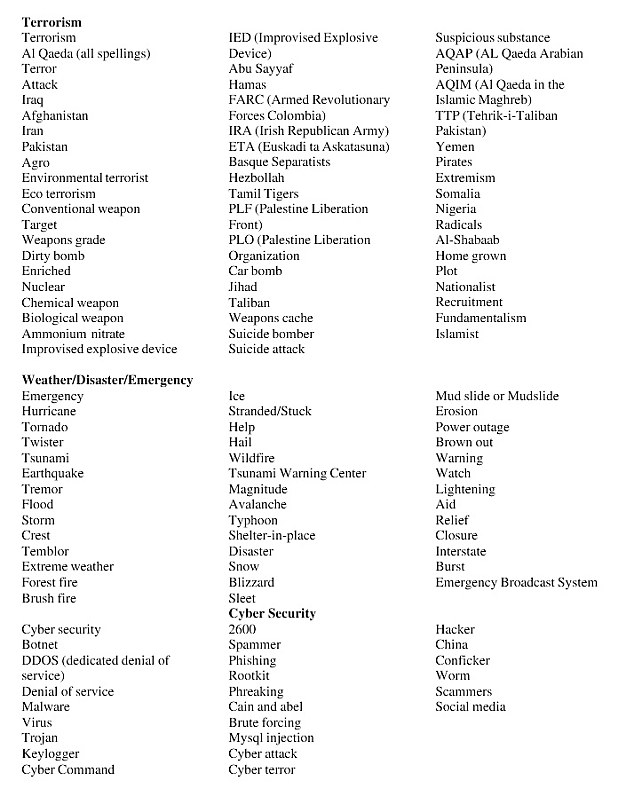By SUA Staff – Again we see the razor thin edge between keeping America safe and spying on her citizens. Speech is being monitored, and the article below and our own previous reporting prove it. We also tested it, successfully; or rather they were successful, we just witnessed their handi-work.
Anyone who uses Facebook on a regular basis as does SUA, has seen the ‘anomalies’ first hand, or heard about them. It is common to see ‘posts’ disappear, or to have your conversation stopped amid stream, or to be cut-off from using your ‘wall’ altogether for some unknown reason. It is widely known or suspected that Facebook and other social networking sites collect tons of data, and if you use certain words too often, you too will witness the obvious monitoring.
With the reported 900,000,000 users of Facebook talking on-line, the numbers would tell you it’s impossible for humans to monitor every conversation, so how is it that a completely innocuous conversation gets stopped?
In a recent discussion witnessed by SUA, several ‘friends’ were discussing Islam and its history. There were no threats, no secrets, just a historical discussion of facts and opinions, some not so flattering to Islam…then, bingo, the conversation was cut-off.
We know, and can prove it; we performed screen captures.
Algorithms; formulas that are crawling across the sites spot these word usages, and bingo…they find them. These are not technical glitches, they are examples of proactive monitoring. How First Amendment compliant is that? How is that living up to the law that was created to protect you, and DHS’s image?
To the public, the surface explanation is two-fold, one to keep you safe, the other to monitor how the public perceives DHS and its activities. Why point two? Because DHS has credibility issues, it is perceived as ‘big brother’, it knows it has failed miserably on many occasions, so it needs to practice CYA. It knows there are tons of data they are not privy to, so they scan to see what citizen journalists have found.
Ostensibly, reading the actual words printed, it sounds like a great way for DHS to stay abreast of the mountains of information available from open sources that should be known by its staff and management. As public servants, its wise to be more conversant in all aspects of all events to make sure that the proper resources are being allocated, dangers are mitigated, and life-saving efforts can be maximized. Sounds great – our tax dollars going to a good thing; our government being wise and efficient.
To the more astute citizen, it is clearly watching what people say or do. It is then using and/or storing that data for future use in prosecutions, and more nefariously, for political gains. Like most government and political endeavors, there is ‘plausible deniability’ but the ‘adults in the room’ know and see through these thinly veiled excuses.
At what point are we sacrificing liberty for security?
_______________________
Revealed: Hundreds of words to avoid using online if you don’t want the government spying on you
- (and they include ‘pork’, ‘cloud’ and ‘Mexico’)
- Department of Homeland Security forced to release list following freedom of information request
- Agency insists it only looks for evidence of genuine threats to the U.S. and not for signs of general dissent
By DANIEL MILLER – Daily Mail UK
The Department of Homeland Security has been forced to release a list of keywords and phrases it uses to monitor social networking sites and online media for signs of terrorist or other threats against the U.S.

Revealing: A list of keywords used by government analysts to scour the internet for evidence of threats to the U.S. has been released under the Freedom of Information Act
The intriguing the list includes obvious choices such as ‘attack’, ‘Al Qaeda’, ‘terrorism’ and ‘dirty bomb’ alongside dozens of seemingly innocent words like ‘pork’, ‘cloud’, ‘team’ and ‘Mexico’.
Released under a freedom of information request, the information sheds new light on how government analysts are instructed to patrol the internet searching for domestic and external threats.
The words are included in the department’s 2011 ‘Analyst’s Desktop Binder‘ used by workers at their National Operations Center which instructs workers to identify ‘media reports that reflect adversely on DHS and response activities’.
Department chiefs were forced to release the manual following a House hearing over documents obtained through a Freedom of Information Act lawsuit which revealed how analysts monitor social networks and media organisations for comments that ‘reflect adversely’ on the government.
However they insisted the practice was aimed not at policing the internet for disparaging remarks about the government and signs of general dissent, but to provide awareness of any potential threats.
As well as terrorism, analysts are instructed to search for evidence of unfolding natural disasters, public health threats and serious crimes such as mall/school shootings, major drug busts, illegal immigrant busts.
The list has been posted online by the Electronic Privacy Information Center – a privacy watchdog group who filed a request under the Freedom of Information Act before suing to obtain the release of the documents.
In a letter to the House Homeland Security Subcommittee on Counter-terrorism and Intelligence, the centre described the choice of words as ‘broad, vague and ambiguous’.
They point out that it includes ‘vast amounts of First Amendment protected speech that is entirely unrelated to the Department of Homeland Security mission to protect the public against terrorism and disasters.’
A senior Homeland Security official told the Huffington Post that the manual ‘is a starting point, not the endgame’ in maintaining situational awareness of natural and man-made threats and denied that the government was monitoring signs of dissent.
However the agency admitted that the language used was vague and in need of updating.
Spokesman Matthew Chandler told website: ‘To ensure clarity, as part of … routine compliance review, DHS will review the language contained in all materials to clearly and accurately convey the parameters and intention of the program.’




